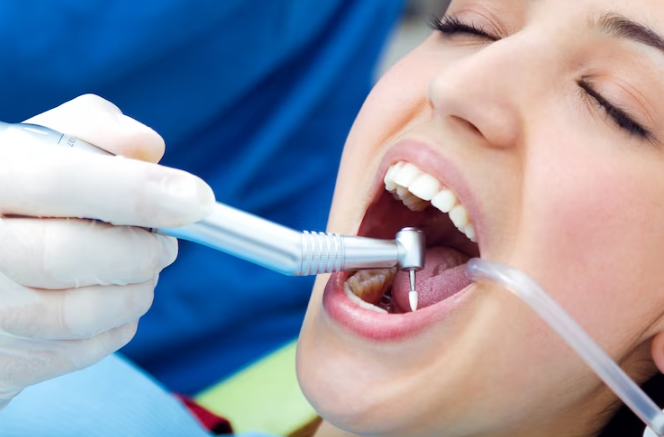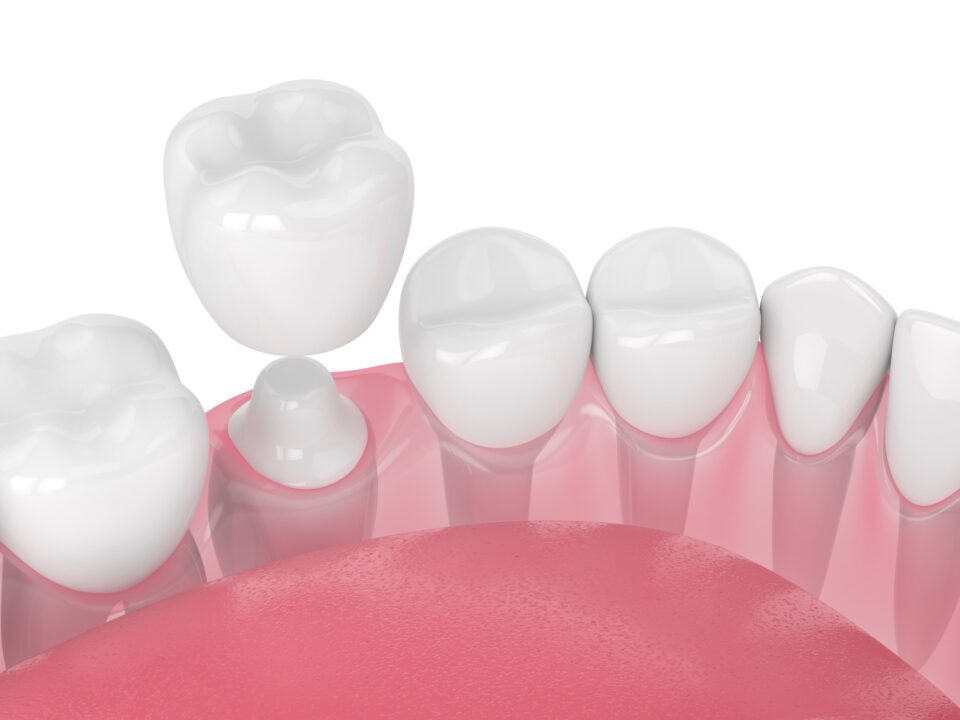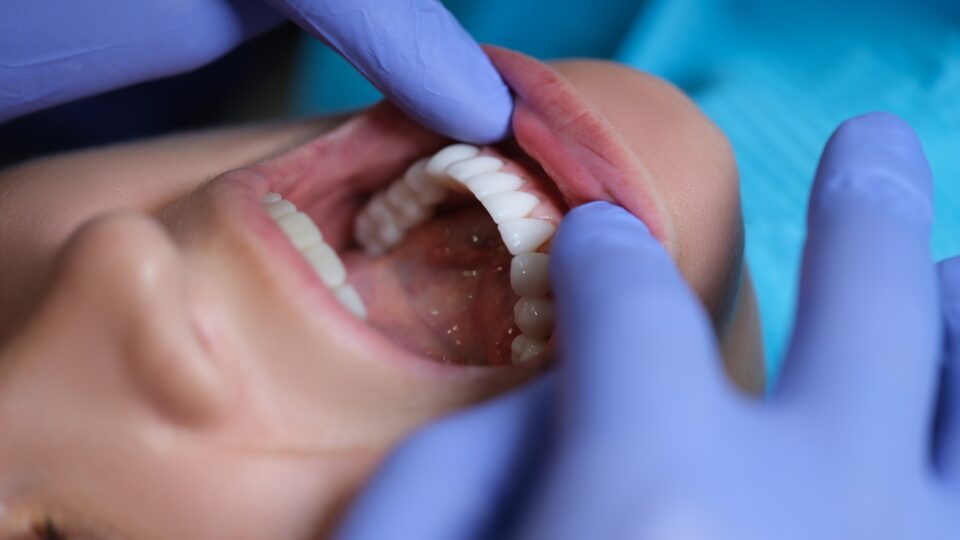Wisdom teeth, the third set of molars at the back of the mouth, often present unique challenges. These teeth usually emerge during late adolescence or early adulthood, and due to various factors, they may become impacted.
Understanding the signs and symptoms of impacted wisdom teeth, the removal process, associated risks, and how cosmetic dental procedures can assist post-removal can be crucial for maintaining optimal oral health.
What Are The Signs And Symptoms Of Impacted Wisdom Teeth?
The discomfort associated with impacted wisdom teeth can be quite pronounced and disruptive. These symptoms generally arise when the wisdom teeth fail to emerge fully from the gums. This often occurs due to insufficient space or misalignment. Here’s a closer look at the common signs and symptoms:
- Persistent Pain: One of the primary indicators is ongoing pain in the back of the mouth. This pain can range from mild to severe and is often felt in the area where the wisdom teeth are trying to come through.
- Swelling of the Gums: You may notice the gums around the wisdom teeth become swollen and tender. This swelling can make eating or speaking uncomfortable and sometimes lead to redness or irritation.
- Noticeable Bump: Sometimes, a noticeable bump or bulge may appear where the tooth attempts to break through the gum line. This can be visually obvious and might be accompanied by discomfort.
- Jaw or Facial Swelling: In more severe cases, the swelling can extend to the jaw or face, making it difficult to open the mouth fully. Headaches can also accompany this, adding to the overall discomfort.
- Oral Hygiene Issues: Impacted wisdom teeth can create pockets in the gum where bacteria and food particles can get trapped. This can lead to infections or an unpleasant odor called bad breath.
- Shifts or Alignment Issues: If the impacted teeth push against adjacent teeth, they may cause misalignment or shifts in the dental structure. This can create additional discomfort and a sense of pressure in the mouth.
These symptoms highlight the importance of monitoring and addressing any issues related to wisdom teeth early on. If you experience any of these signs, it’s advisable to consult with a dental professional to prevent further complications.
How Does A Cosmetic Dentist Remove Impacted Wisdom Teeth?
Oral surgeons commonly perform the removal of impacted wisdom teeth, but cosmetic dentists can also handle these cases, especially when they involve complex scenarios that impact the appearance of the smile. The first step is an in-depth evaluation, which may involve X-rays to determine the exact location and angle of the wisdom teeth in relation to other structures in the mouth.
Before the procedure, the dentist will discuss sedation options to ensure comfort. These can range from local anesthesia to more advanced sedatives, depending on the complexity of the extraction and the patient’s level of anxiety. The dentist will then incision the gum tissue to access the impacted tooth. Sometimes, the tooth might be sectioned into smaller pieces for easier removal. After extraction, the site is cleaned, and stitches may be used to promote healing.
A speedy recovery is possible with proper post-operative care. Typical recommendations for patients include using ice packs to reduce swelling, taking medications as directed, and sticking to a bland diet for a few days.
What Are The Risks Associated With Leaving Impacted Wisdom Teeth Untreated?
Ignoring impacted wisdom teeth can lead to several serious complications that affect the immediate area and your overall oral health. Here’s a breakdown of the primary risks involved:
- Infections: One of the most common issues is the development of infections such as pericoronitis. This condition occurs when bacteria become trapped in the gum tissue surrounding the impacted tooth. It can lead to severe pain, swelling, and even spread to other areas of the mouth or jaw. Infections can cause considerable discomfort and may require antibiotics or more invasive treatments to resolve.
- Cyst Formation: Impacted wisdom teeth can sometimes lead to the formation of cysts, which are fluid-filled sacs that develop around the impacted tooth. These cysts can damage the surrounding bone and teeth, potentially leading to more extensive dental problems. The presence of cysts may necessitate additional procedures to address the damage and restore oral health.
- Dental Alignment Issues: Impacted wisdom teeth exert pressure on adjacent molars, causing dental crowding or misalignment. This can disrupt the natural alignment of your teeth and complicate future orthodontic treatments. In severe cases, the pressure from impacted teeth may even damage the roots of nearby teeth, leading to more complex dental issues.
Leaving impacted wisdom teeth untreated can result in painful and costly complications. Addressing these issues promptly with the help of a dental professional can help prevent these risks and maintain your oral health.
How Can Cosmetic Dental Procedures Help After Wisdom Teeth Removal?
After removing impacted wisdom teeth, many patients seek cosmetic dental procedures to address any resulting issues or enhance their smile. One common concern is the appearance of the area where the tooth was extracted. Cosmetic treatments can help in various ways, depending on individual needs.
Dental bonding and veneers are two cosmetic dentistry procedures that cosmetic dentists may suggest if tooth extractions leave visible gaps or unevenness in the smile. Dental implants could be an option for more extensive instances. Dental implants are a long-term, beautiful, and functional alternative to tooth loss.
Another aspect to consider is gum contouring. Sometimes, the removal process can result in changes to the gum line, and cosmetic procedures can help reshape and smooth the gums for a more balanced and natural appearance. This can also improve overall oral health and hygiene.
In addition, cosmetic dentists can assist with integrating any orthodontic work that might be necessary post-extraction. This ensures that the teeth’s alignment is maintained or restored, contributing to both function and aesthetics.
Overall, though often necessary, the removal of impacted wisdom teeth can be managed effectively with cosmetic dentistry to ensure that your smile remains healthy and attractive.
Why JBDentistry Is Your Best Choice for Wisdom Teeth Removal
At JBDentistry, we understand that removing impacted wisdom teeth is not just a procedure but a step toward maintaining your overall dental health and enhancing your smile. Our team of experienced cosmetic dentists is dedicated to providing top-notch care tailored to your unique needs.
Our practice combines advanced technology with compassion to ensure a comfortable and effective treatment experience. We use state-of-the-art imaging techniques to precisely plan and execute the extraction, minimizing discomfort and promoting quicker recovery. Our commitment to patient care means we offer a range of sedation options to help you feel relaxed and at ease throughout the process.
Beyond the extraction, our cosmetic dental services are designed to enhance the results of your treatment. Whether it’s addressing gaps, reshaping your gum line, or exploring options like dental implants, JBDentistry is equipped to help you achieve a functional and beautiful smile.
JBDentistry means choosing a team that prioritizes your dental health and aesthetic goals and ensures you receive the best care possible at every step.
Frequently Asked Questions About Wisdom Teeth Removal
How Much Does Wisdom Teeth Removal Cost?
Impacted wisdom tooth extraction costs can range from affordable to prohibitively expensive, depending on factors including extraction intricacy and anesthetic choice. Prices for each teeth often fall between $200 and $600. If additional treatments are required if the teeth are deeply impacted, the price can go up. Our goal here at JBDentistry is to provide you with honest pricing and to help you find financing alternatives that work for you.
Is Wisdom Teeth Removal Painful?
Most patients experience minimal discomfort during the procedure due to effective anesthesia and sedation options. After the extraction, you may feel soreness and swelling, but this can be managed with prescribed medications and proper aftercare. Our team will guide you through every step to ensure your recovery is as smooth as possible.
How Long Does Recovery Take?
Recovery time can vary, but most patients expect to feel significantly better within a few days. Full healing of the gum tissue may take a few weeks. Following post-operative care instructions and attending follow-up appointments will help ensure a faster and more comfortable recovery.
What Should I Do If I Have Complications After the Procedure?
If you experience severe pain, prolonged swelling, or signs of infection after the procedure, contact us immediately. Our team is here to address any concerns and provide the necessary care to resolve issues quickly and effectively.
Ready for a Healthier, More Beautiful Smile?
At JBDentistry, we support you through every step of your wisdom teeth removal journey. Your treatment will be handled with the utmost care by our skilled team, and we are dedicated to helping you attain a smile you’ll enjoy. Get in touch with us right away to set up a consultation and find out how our individualized treatment can keep your teeth in the best possible condition.


